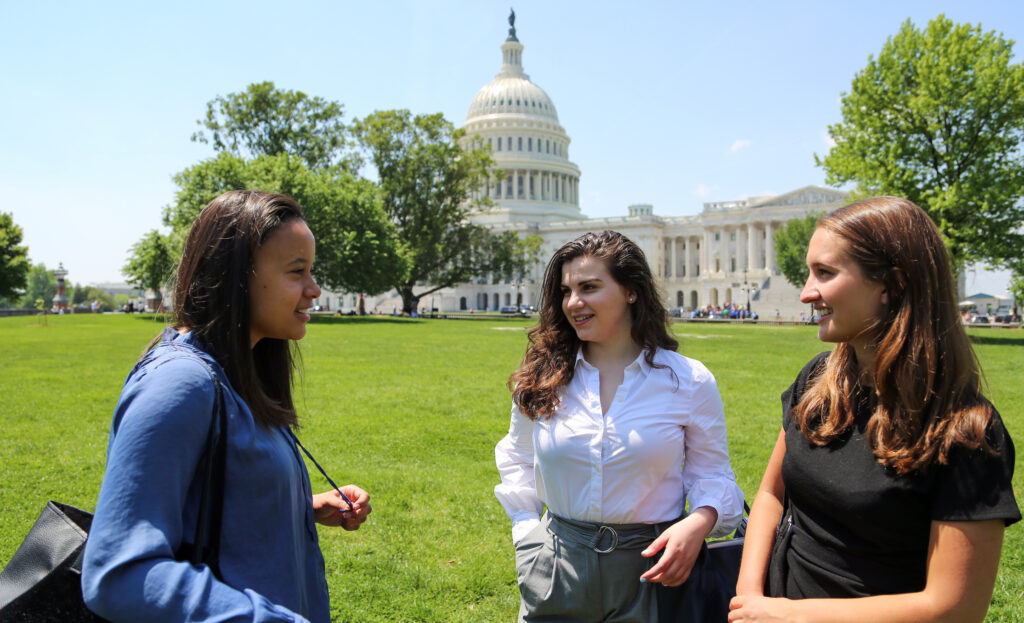Internships

Hoyas on Capitol Hill pursuing internship opportunities.
Washington, DC, is more than the center for political power. Through internships, students can explore many professions, not just politics. Students gain real-world experience by working with the federal government, the DC government, nonprofits, think tanks, private businesses, news organizations, and museums.
Students can search for internships through the Cawley Career Education Center. Before beginning an internship, it is important to speak to your dean about the options for earning credit related to your internship.
The College does not directly award credit for participation in internships. However, we do award credit for courses that combine a student’s internship experience with intellectual reflection. The College offers a one-credit pass/fail course for College sophomores, juniors, and seniors in good standing: CASS-3925 College Internship Experience. (NOTE: We do not allow first-year students to enroll in CASS-3925 because we want them to prioritize intellectual exploration and the overall adjustment to college academic life.)
- Students may take this course for credit more than once, but only 1 credit will count toward the Georgetown degree (the limit of 1 credit includes credit from MGMT-2925, a similar course taught in the MSB).
- CASS-3925 may be taken in the fall or spring semesters or during summer school.
Students may also seek faculty sponsorship for intellectual reflection related to an internship in the form of a tutorial. Tutorials require faculty, department, and dean’s office approval and the credits vary based on the tutorial.
The College also offers other internship-based courses:
- ARTH-470 Museum Internship
- ARTS-470 Art Internship
- HIST-101 & HIST-102 History Internship Tutorial
- JOUR-350 Media Techniques
Community-Based Work
Through collaboration with the Center for Social Justice Research, Teaching, and Service, the College offers a number of community-based learning (CBL) courses. These three and four-credit classes fully integrate community work with academic coursework. Students typically work with nonprofit organizations in the Washington, DC area. CBL courses have included Social Entrepreneurship: Leading Social Change, Introduction to Justice and Peace, Foundations in Education, and Social Justice Documentary.
Through the CSJ, students may also add a 4th-credit option for social action. Students apply their work with disadvantaged or underrepresented individuals to a course, with approval from the CSJ and their professor.